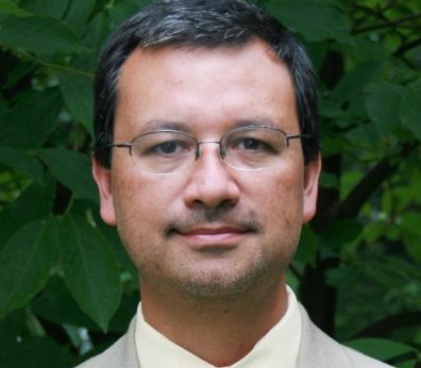"A Process Pipeline of Lignin Valorization," by Daniel R. Noguera

Abstract
The complex biochemical properties of lignin have so far been major obstacles to deriving valuable chemicals from this biopolymer, which is one of the most abundant polymers on Earth. Lignin’s renowned recalcitrance is largely attributable to its racemic nature and the variety of covalent inter-unit linkages through which its aromatic monomers are linked. Indeed, unlike other biopolymers whose monomers are consistently inter-linked by a single type of covalent bond, the monomeric units in lignin are linked via non-enzymatic, combinatorial radical coupling reactions that give rise to a variety of inter-unit covalent bonds in mildly branched racemic polymers. Yet, despite the chemical complexity and stability of lignin, significant strides have been made in recent years to identify routes through which valued commodities can be derived from it. This presentation describes the Great Lakes Bioenergy Research Center’s approach to creating a combination of chemical and biochemical process pipeline through which degradation of lignin to aromatic monomers can lead to the derivation of commercially valuable products.
Bio
Daniel R. Noguera is Wisconsin Distinguished Professor in the Department of Civil and Environmental Engineering (CEE), and Lignin Valorization Team Lead in the Great Lakes Bioenergy Research Center, University of Wisconsin - Madison. Noguera joined the CEE Department as an Assistant Professor in 1997, with promotions to Associate Professor in 2002 and to Professor in 2005. He obtained MS and PhD degrees in environmental engineering from the University of Illinois at Urbana-Champaign, and was a postdoctoral researcher at Northwestern University. His BS degree is in civil engineering from the University of Los Andes, in Bogotá, Colombia.
Professor Noguera teaches undergraduate and graduate courses in environmental engineering. He enthusiastically participates in programs aimed at promoting equity and diversity in the engineering profession, and firmly believes in actively involving students in conferences, publications and other modes of communication with the professional community. Most of his former PhD students and postdoctoral researchers hold faculty positions, while most of his former MS students work with environmental engineering consulting firms. Current courses include Biological Treatment Processes, and Biological Principles of Environmental Engineering.
Dr. Noguera's research laboratory has been actively involved in activated sludge research, primarily related to the minimization of energy utilization during nitrogen and phosphorus removal in wastewater treatment plants, the recovery of nutrients from wastewater, and the microbial ecology of wastewater treatment processes. His lab has also been active in drinking water research aimed at understanding microbial diversity in drinking water distribution systems and improving water quality when chloramines are used as secondary disinfectants. In the biotechnology area, Noguera's laboratory was a pioneer in the development of mathematical and thermodynamic models to simulate DNA/RNA hybridizations in situ, with applications in the detection of specific microorganisms within mixed microbial communities. He has also directed research on the development of software tools to detect chimeric DNA sequences, and to design DNA oligonucleotide probes for fluorescence in situ hybridization (FISH), microarrays, and qPCR applications.
More recently, Noguera’s research has focused on the utilization of microorganisms for the production of next generation biofuels and biochemicals from cellulosic biomass, elucidation of pathways for degradation of plant-derived aromatic compounds, and the modification of anaerobic digestion for recovery of valuable chemicals from lignocellulosic waste streams.
The National Science Foundation has sponsored Noguera’s work (including a CAREER award in 1999), as have the Department of Energy, the Office of Naval Research, the Environmental Protection Agency, Water Research Foundation, the Madison Metropolitan Sewerage District, and other industrial partners.
Noguera has been recognized for his work with the Paul Busch Award from the Water Environment Research Foundation, the Harrison Prescott Eddy Medal and the Fair Distinguished Engineering Educator Award from the Water Environment Federation, and the Wisconsin Water Association Research Award, among others. With his students, he has received Thesis awards from the American Water Works Association and the Association of Environmental Engineering and Science Professors. The University of Wisconsin has also recognized Noguera’s leadership and accomplishments, naming him a Vilas Associate of the Graduate School for the period of 2003-2005 and Wisconsin Distinguished Professor (2010-2020).
Sponsored by the Department of Civil and Environmental Engineering and Earth Sciences
Downloads:
Noguera seminar flier